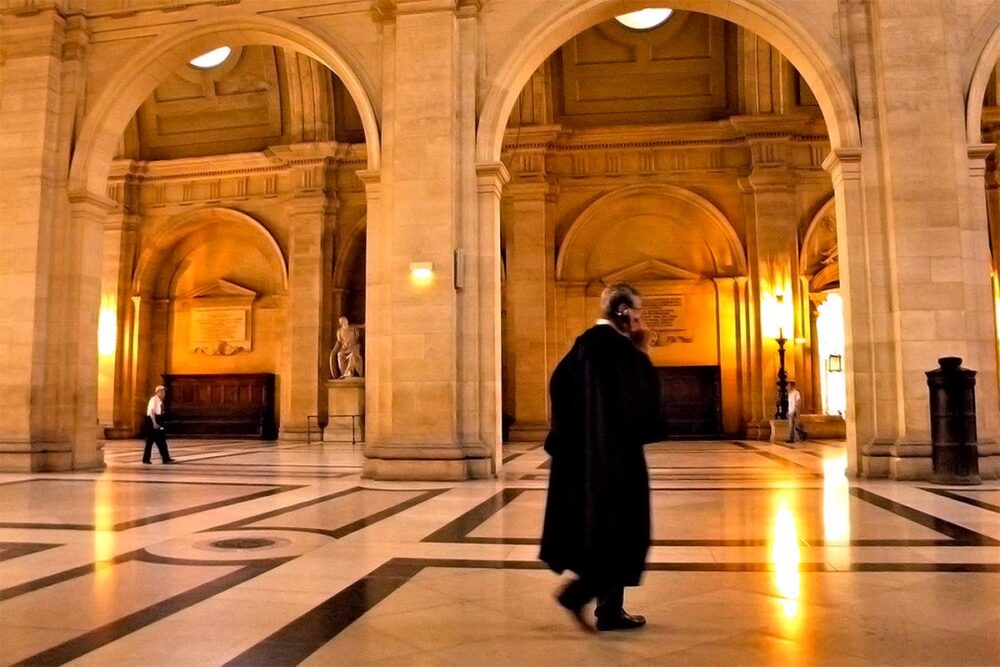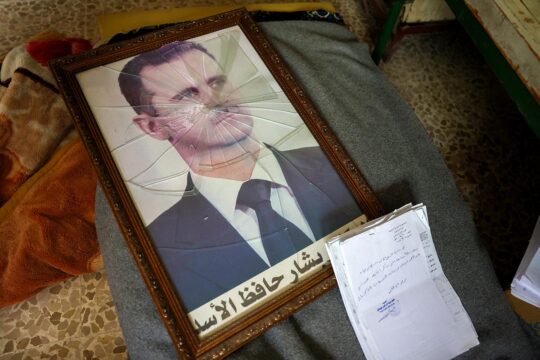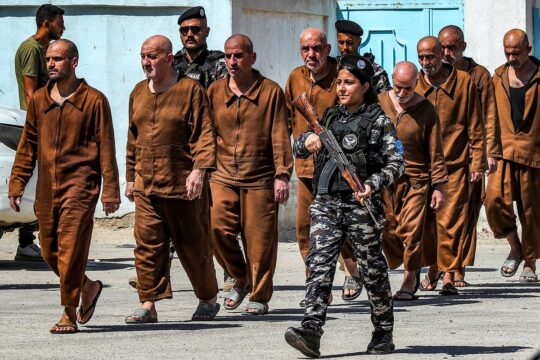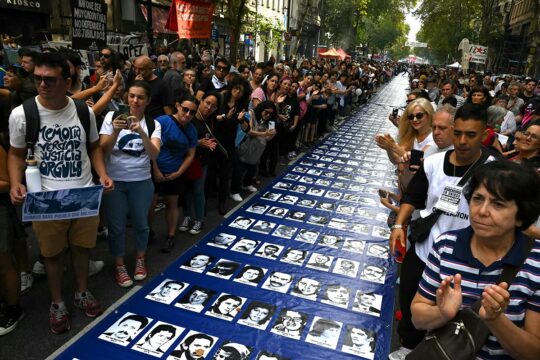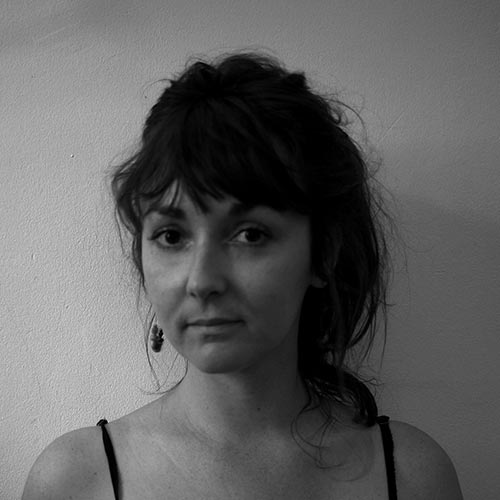He says he came “to bear witness to what he saw” because he promised himself “to always do something against those who commit abuses”. For several years, Ahmed* says he documented the crimes of both the regime and rebel groups in Syria’s Eastern Ghouta.
Even today, he says, this work has earned him numerous threats. To protect himself from these possible “risks”, the Syrian activist who has taken refuge in France has requested anonymity, as have the two other individuals who have filed a civil action. Their reason: a climate of “threats and pressure” against them, which “took place throughout the investigation” and continued “until very recently”, according to their lawyer, Marc Bailly.
Majdi Nema has been on trial since 29 April 2025 for complicity in war crimes and “collusion” with the Jaysh al-Islam group, “in his capacity as spokesman, intelligence officer and strategic adviser to the group’s leadership”.
Threats to prosecution witnesses
Citing threats or risks, several witnesses indicated that they will not testify, either at the opening of the trial or in the days that followed. But apart from the “sometimes direct threats” that may have made against them, Bailly also explains their absence by the change of regime and the inclusion of certain rebel groups - including Jaysh al-Islam - into the institutions of the new government in Damascus.
The witnesses “do not want to insult the future”, should they wish to return to Syria, “nor do they want to jeopardise their families” who have stayed there - and on whom their testimony could have repercussions, explained the lawyer at the very first hearing of the trial. In all, according to the national anti-terrorism prosecutor’s office (PNAT), ten Syrian witnesses who were to be heard at its request failed to appear.
No defence witnesses
On the defence side, for very different reasons, witnesses are totally absent. Nema’s lawyers, Romain Ruiz and Raphaël Kempf, had initially requested that five people be heard on his behalf. Three live in Syria, two in Turkey. But none of them, they claim, has received a summons to appear in court. While this does not surprise them in the case of Syria - given the context and the change of regime - the same cannot be said for Turkey, with which France maintains judicial cooperation ties.
The Turkish authorities reportedly never replied to the ministry of justice’s Bureau for international mutual assistance in criminal matters (BPI), which had asked them to notify the two witnesses of their summons to appear before the Paris Assize Court. After several weeks of uncertainty as to whether it would be possible to hear them, and some heated discussions at the hearing about who was to take responsibility for their absence, the president of the court decided to “go ahead” - ruling out the possibility of organising a remote meeting, by videoconference, using an encrypted messaging application.
“This is the state of cooperation in international criminal justice”, said Nema’s lawyers, who finally argued in favour of a request to adjourn the trial on the evening of Monday 19 May 2025. They told the court that they were asking for a simple “judicial decision”, since “everyone has the right to a defence”. The request was rejected the following morning.
In the end, only two witnesses called by the prosecution at the request of the defence - considered relevant to shedding light on Nema’s role within Jaysh al-Islam - were heard.
“We are not the lawyers of Jaysh al-Islam”
In his closing argument, Kempf argued that postponing the trial would have enabled the parties to travel to Syria in search of new witnesses or victims who would participate in “establishing the truth”. According to Kempf, “the trial is going in all directions”. For several days now, the defence has been complaining that “the vast majority of the debates have been extremely far apart from what Nema is accused of”, and that entire hours have been “wasted” hearing “witnesses who do not know the accused”.
According to Ruiz, this is a consequence of the way the trial was constructed. On the side, he explains: “French justice wants to do justice for the crimes committed in Syria. But instead of putting Majdi Nema on trial, it is putting Jaysh al-Islam on trial. That’s why we don’t systematically intervene in hearings: we’re not the lawyers for Jaysh al-Islam. The problem is that it is not the group as a legal entity that is facing twenty years in prison, but Majdi Nema, who has already been in prison for five years.”
As for the advisability of travelling to Syria to meet witnesses, “things have been much more difficult for us since the fall of the regime,” replied Bailly, who contested any “breach of equality”. “Like you,” he said to the defence, “I would have liked to be able to go there even before this trial. But I couldn’t, because it wasn’t possible to ensure my safety”. The civil parties’ lawyer recalls the fears and the threats suffered by the witnesses, but also by the civil parties’ organisations he represents - the Syrian Centre for Media and Freedom of Expression (SCM), the International Federation of Human Rights (FIDH) and the Human Rights League (LDH).
Refusal of French visas for some witnesses
On the prosecution side, no one disputes the weight of the absence of some witnesses who would have shed more light on Nema’s role within Jaysh al-Islam. During his hearing as a representative of the SCM, Mazen Darwish regretted that several of them were unable to attend “because of the danger for themselves or for their families”. But he was also keen to “protest to the court” because, in his view, several “important witnesses” had not been “supported by France to come and testify”. More precisely, they had not obtained their visas, preventing them from appearing in court.
This could concern at least one “key witness”, a young man who had been interviewed during the judicial investigation and whose testimony was due to be heard on Thursday 22 May - a priori behind closed doors. According to the indictment, the young man (renamed “witness Xh3”) described to the investigators the circumstances of his enrolment in a training camp “when he was a minor” to undergo a training “praised by Jaysh al-Islam”, before being assigned to a brigade of the rebel group. He explained that the training was “aimed at young people aged 13 to 14”; he himself was aged 13, Bailly told Justice Info.
In his statement to the investigators, “Xh3” added that he had seen Nema, alias Islam Alloush, at meetings “with the general staff” of the rebel group, and that he had also seen him inflict “ill-treatment on detainees”.
“But he didn’t get his visa”, says Bailly, despite the importance his testimony could represent before the Paris Assize Court - which is precisely trying Nema on charges of complicity in the enlistment or conscription of minors. In this case, Nema is suspected of having provided “assistance” in their recruitment and training, and of participating in the distribution of propaganda intended to “indoctrinate” them.
The refusal to grant a visa to “witness Xh3” is the result of a blockade by the interior ministry, for which “today’s policy is not to welcome people who we are not sure can return to their country of origin”, without any other considerations, Bailly told Justice Info.
In court, the statements of “witness Xh3” were not read out by the president on Thursday, as it was the case with the statements of other absent witnesses. Bailly indicated that he might nevertheless go back to some of the information provided by the young man in the course of the trial in his closing arguments this Monday.
* Given name


